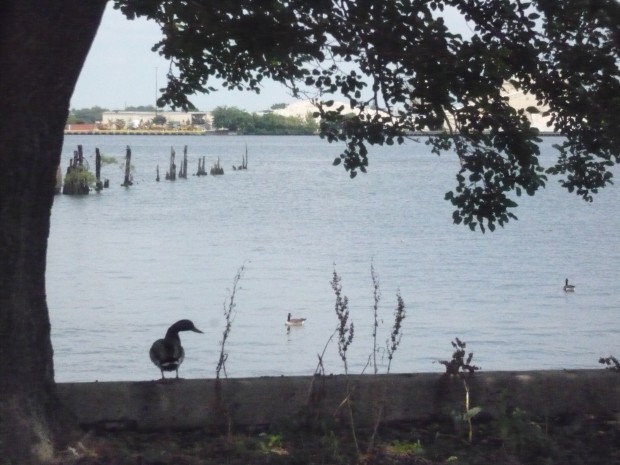$35M initiative aims to improve water quality in the Delaware River basin
-
Katie Colaneri
The Delaware River watershed supplies drinking water to millions of people. Managing water quality is a challenge that changes from upstate New York down to the Delaware Bay. The William Penn Foundation announced today a $35 million initiative to tackle this shifting problem by uniting the efforts of more than 40 conservation groups and monitoring the results.
Rather than approaching the whole river basin at once, the Philadelphia-based philanthropy’s efforts are focusing on eight sub-watersheds, or clusters of rivers and streams facing different challenges from forest fragmentation to agricultural runoff.
“It really is about this idea of collective and cumulative impacts that we can observe and measure and fine-tune and then model to export to other places,” said Andrew Johnson, the foundation’s senior program officer for watershed protection.
Water quality fluctuates across the more than 13,500-mile watershed that spans parts of New York, New Jersey, Delaware and Pennsylvania. For instance, the forested regions near the Poconos Mountains and the wetlands of the Upper Lehigh have some of the lowest numbers of impaired streams and hundreds of thousands of acres of protected lands. The goal in these areas will be to maintain water quality by preventing deforestation and promoting sensitive development.
Bud Cook with the Pennsylvania field office of The Nature Conservancy said part of their efforts will focus on working with landowners to conserve forestland.
“When a family needs revenue they often have to sell off 20 acres worth of timber,” Cook said. “They may not be harvesting the timber in a way that’s good for the fresh water resources.”
Cook said another threat to forest conservation in the upper reaches of the watershed is energy infrastructure like natural gas pipelines and other transmission lines.
By contrast, groups working in the suburbs of Philadelphia have the challenge of cleaning up waterways that have been polluted by urban runoff. When it rains, pollutants from gasoline to garbage get pushed off impervious surfaces into rivers and streams.
“Your rooftop contributes to that from the downspouts, your driveway contributes to that, your office park, your parking lot, your shopping center,” said Patrick Starr, executive vice president of the Pennsylvania Environment Council.
The National Fish and Wildlife Foundation will receive $7 million to give out to local groups for restoration projects such as tree planting and programs to teach farmers and citizens how to better manage runoff. The Open Space Institute will get $10 million to distribute for acquisitions and easements to protect land from development.
Restoration efforts will be monitored by a team from the Academy of Natural Sciences of Drexel University through a $3 million grant. That includes collecting baseline data on water quality in each sub-watershed and tracking improvement over the first three years.
“Never before have we been actually asked or required by our funding source to actually try to show that there’s actual measurable water quality improvement and change,” said Patrick Starr.
Gathering baseline water quality data is of particular importance as the Delaware River watershed prepares for potential natural gas development. There is currently a moratorium on drilling in the watershed, but Andrew Johnson with the William Penn Foundation says this initiative will create a significant repository of data if the moratorium is lifted.
“It’s a really important tool and effort to guide development.”
*A note of disclosure: StateImpact Pennsylvania receives funding from the William Penn Foundation

















